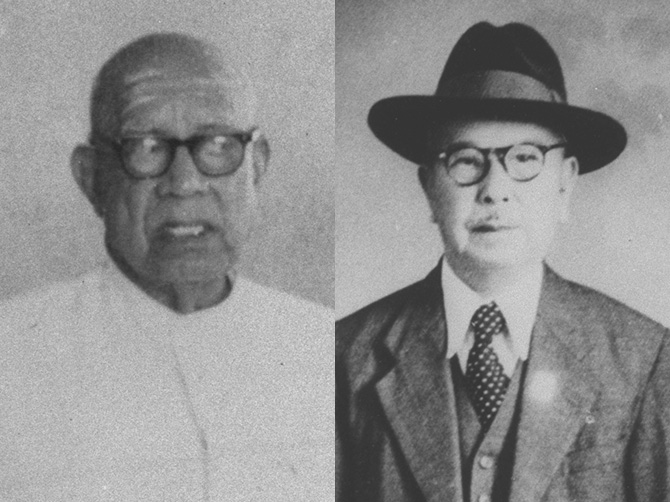Education advocate, philanthropist and businessman
Tan Kah Kee, nicknamed ‘Henry Ford of Malaya’, was a shrewd businessman who made his fortune in pineapple and rubber, as well as in the tin canning business.
Tan was also an advocate of education and in a little over a decade, he founded various schools, including Tao Nan School, Ai Tong School, Chock Hock Girls’ School, Nanyang Girls’ School and Nanyang Chinese High School. Nanyang Chinese High School was considered a ground-breaking institute as it was Southeast Asia’s first school that offered higher learning. It was also Singapore’s first Chinese secondary school that was open to all Chinese students, no matter their backgrounds or dialects.

Not only did he help to raise funds for these schools, Tan also personally made generous donations to them and other institutes such as Anglo-Chinese School and Raffles College.
Tan also advocated for harmony between dialect clans and better housing, and worked towards eliminating opium abuse. The influential businessman pushed for these social reforms from his leadership positions at the Singapore Chinese Chamber of Commerce and Singapore Hokkien Huay Kuan.

P. Govindasamy Pillai first arrived in Singapore in 1905 as a teen. He started work at a provision shop where he was granted food and accommodation in return and learnt the ropes of running a business. In 1929, he returned to Singapore with his young wife and found that the store had been put up for sale after its owner passed away. He borrowed money, bought the store and began selling spices, oils and grains. Soon, he expanded this to a chain of stores and even ventured into textiles, flour and spice mills.
A pious man, Pillai gave the biggest donation to the Sri Perumal Temple when it underwent reconstruction in the early 1960s. He also gave generously to other organisations such as the Gandhi Memorial Hall, Indian Association, Mount Alvernia Hospital and the University of Malaya.
In 1928, Pillai founded the Ramakrishna Mission Singapore, an organisation recognised for its work with the poor and needy. Almost 25 years later, a new home for the mission was built at Bartley Road with a generous donation from Pillai. He also volunteered his time at the mission.
As a community leader, Pillai was also a founder-member of the Indian Chamber of Commerce that was set up in 1937, and was appointed a Justice of the Peace in 1939.
----
To commemorate the Singapore Bicentennial and honour the contributions of these early pioneers, a limited edition $20 currency note, featuring eight personalities, was launched at the Istana Open House on 5 June 2019. Members of the public may purchase this note at major banks from 10 June 2019 onwards. There are 2 million pieces available.


